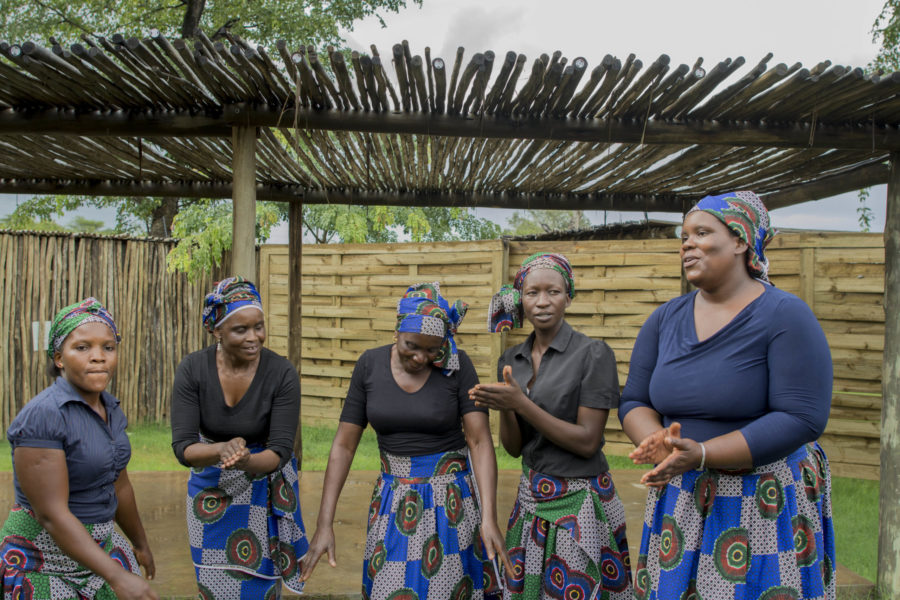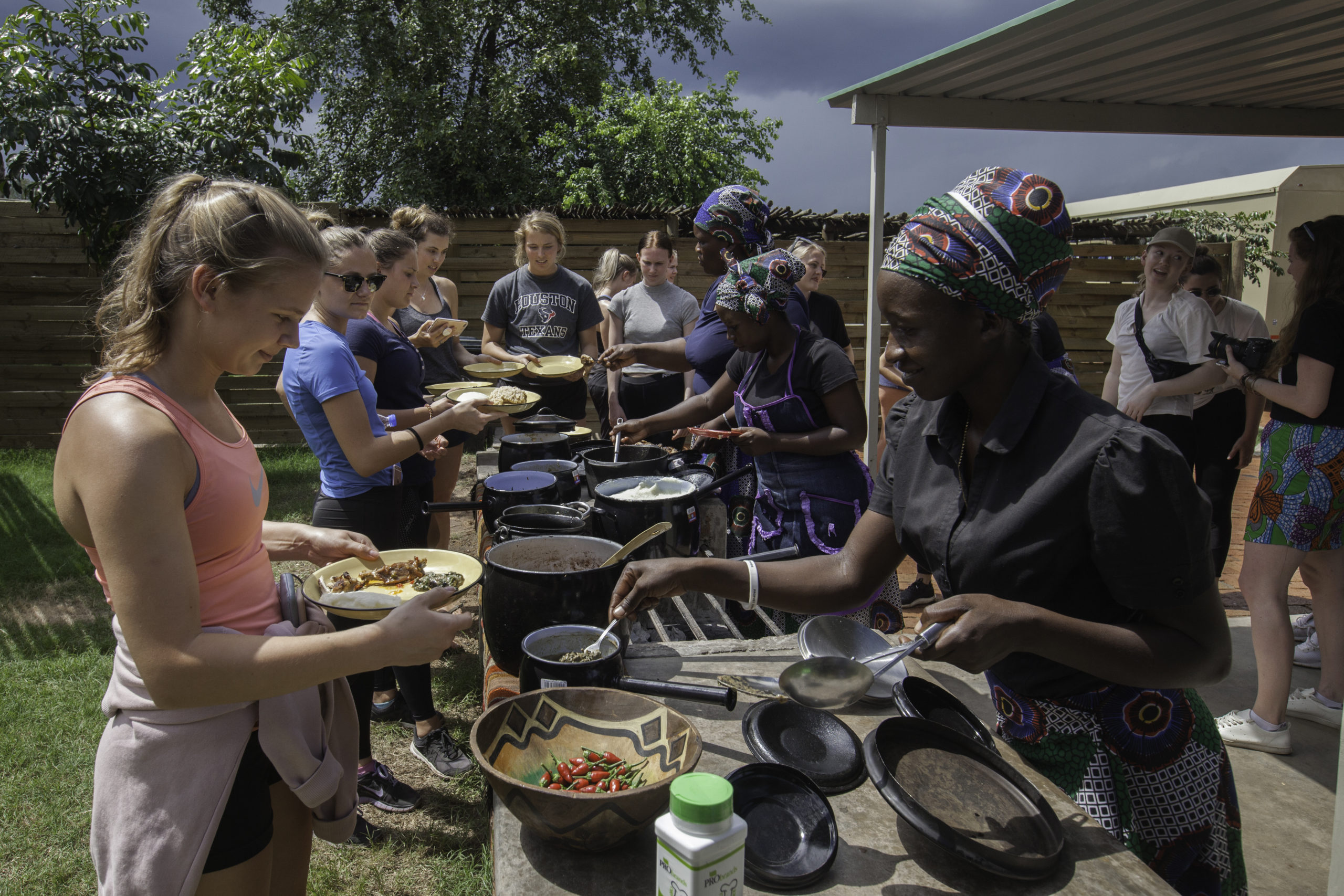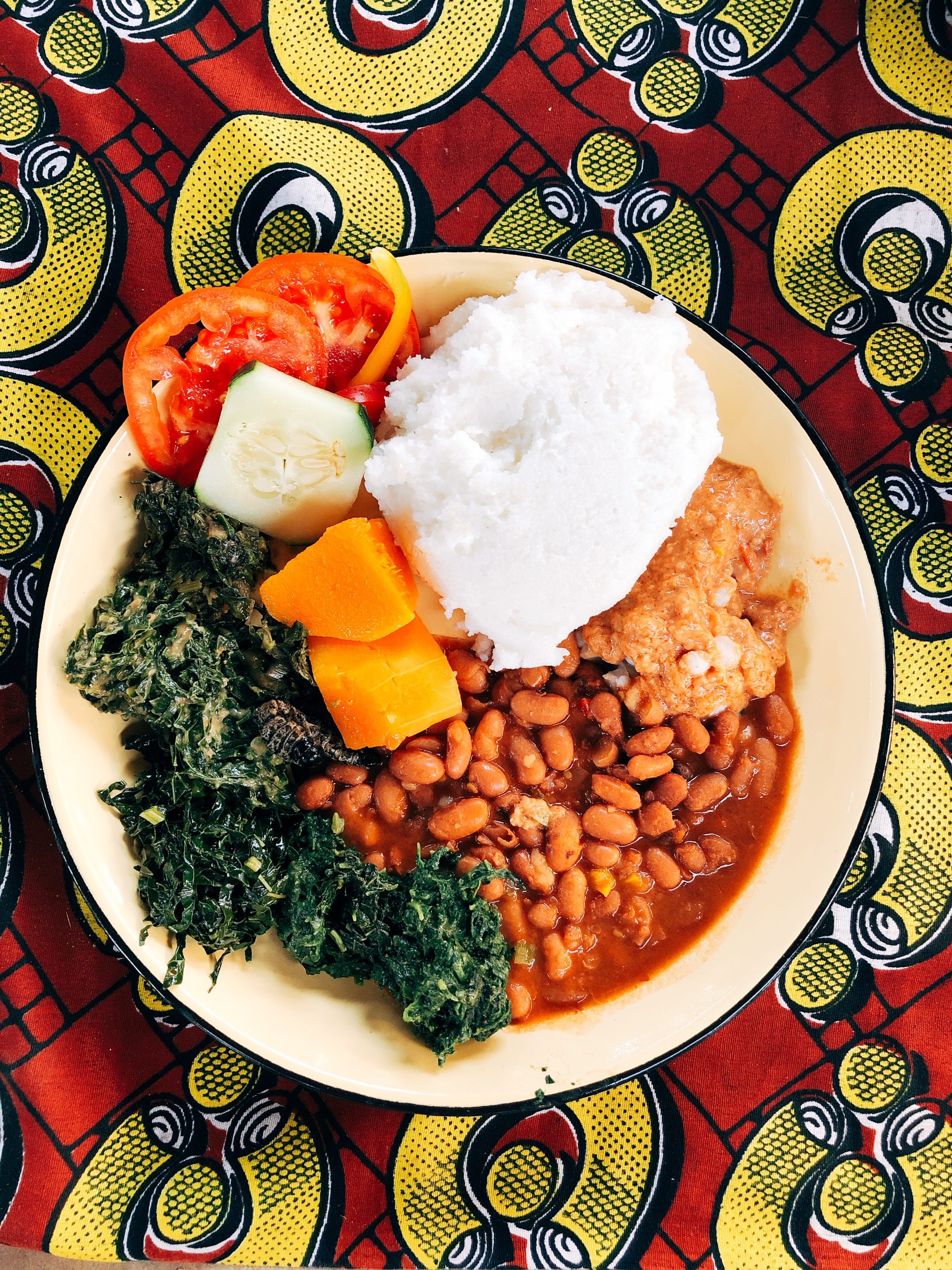HOPE AND INSPIRATION FOR OTHERS
The 20 women of the Lusumpuko Women’s Club chose this name with the hope that they would be able to lift themselves and their communities out of the harsh realities brought on by the economic situation in Zimbabwe. The ladies founded the chicken rearing co-operative as a way to create income for their households, and to help and inspire other, younger ladies to do the same.

How It Started
“It’s our dream to help more women in our community,”
says Lusumpuko president Linda Makarutse, and Merlyn Mpofu, Lusumpuko’s secretary, chimes in:
“The problem now is some of our age group and youth, they are not educated enough to get a job in the tourism industry. There is a need for hospitality training classes, and opportunities for women and youth here in Victoria Falls.”
With this in mind, Planeterra began supporting the co-operative in 2018, and the ladies of Lusumpuko got to receive basic business training. The co-operative also received a grant to help kick-start a meal service in the tourist town of Victoria Falls. This investment helped them purchase much-needed catering equipment, such as pots, a gas cooker, and serving utensils. They also got the chance to empower a different women’s co-operative by purchasing uniforms made from locally sourced chitenge fabric. The launch of their new catering business helped Lusumpuko increase their combined income of about $600 USD to more than four times as much per month, thus significantly improving their quality of life and enabling them to provide for their children while supporting other members of the community.

The meal service is a hearty buffet of traditional Zimbabwean food, as well as an enjoyable experience observing the preparation by the co-operative members. Travellers going through Victoria Falls have the opportunity to enjoy an array of home-cooked Zimbabwean delicacies. This has not only been financially beneficial for the ladies, but emotionally fulfilling for them as well. Most of the ladies will admit to finding a sense of purpose and validation as they can now depend on themselves to take care of their households.
Members of the co-operative used to do odd jobs in the community, like selling floor polish, providing cleaning services, or selling crafts across the border into Zambia or Botswana. Now, they have weekly work using their skills, practicing English, and interacting with international travellers, while many have dreams to one day expand the co-operative to provide other tourism services, like transport.



Post a comment